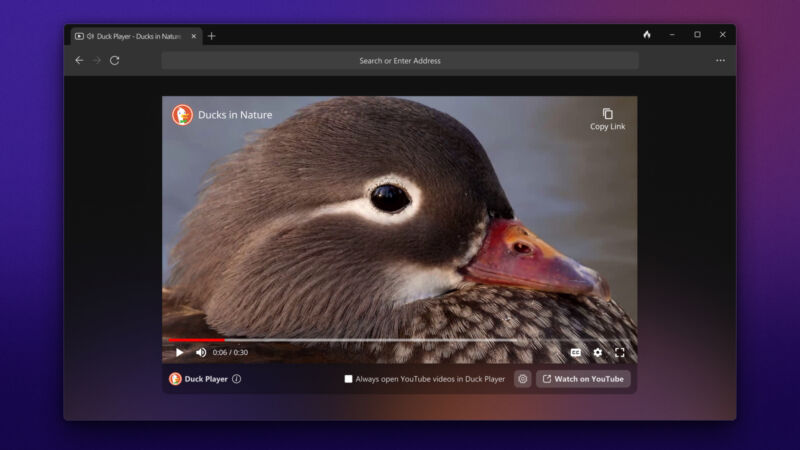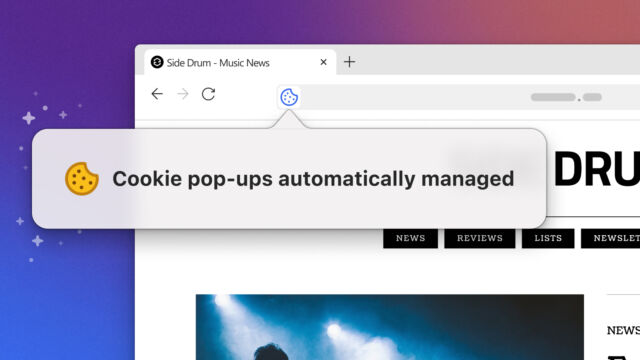
Privacy-focused firm DuckDuckGo has released a public beta of its browser for Windows, offering more default privacy protections and an assortment of Duck-made browsing tools.
More than a year after debuting its browser for Mac in private beta, the search engine and tracking antagonist offers many of those same features to a much wider audience. Like its Mac browser, DuckDuckGo (DDG) uses "the underlying operating system rendering API" rather than its own forked browser code. That's "a Windows WebView2 call that utilizes the Blink rendering engine underneath," according to DuckDuckGo's blog post. Fittingly, the browser reports itself as Microsoft Edge at most header-scanning sites.
Inside the DuckDuckGo browser, you'll find:
- Duck Player, which shows (most) YouTube videos "without privacy-invading ads" and doesn't feed your recommendations
- Tracker blocking that DDG cites as "above and beyond" other browsers, including third-party tracker loading.
- Enforced encryption
- The "fire button" that instantly closes all tabs and clears website data
- Cookie pop-up management, automatically selecting a private option and hiding "I accept" pop-ups
- Email protection, making it easier to use an auto-forwarding duck.com address on web forms.

DuckDuckGo claims that by pre-blocking trackers, its browser uses "about 60 percent less data than Chrome." Being built on Windows' own rendering engine, it's largely relying on Windows' own updates to keep it secure.
One thing DuckDuckGo lacks in comparison with major browsers (or even most minor players) is extensions. DDG plans to add extension support "in the future," but suggests that its password management, ad-blocking tools, and Duck Player already cover two of the most common extension uses. Many other things—tab pinning, HTML bookmark import, and password/bookmark syncing—should be "also coming soon," writes Product Director Peter Dolanjski.
Dolanjski states that DDG aims to open-source its browser, as it has done with some of its apps and extensions. He also notes that its engineers have spent "lots of time addressing any privacy issues specific to WebView2, such as ensuring that crash reports are not sent to Microsoft." DuckDuckGo and Microsoft have had an interesting relationship thus far, with DDG relying on Microsoft and Bing for most of its search results and advertising, but also bristling under some of Microsoft's trackers.
Having used DuckDuckGo's Windows browser for just a bit, I'm eager to see it pick up the one or two extensions I swear by (Vimium and Pocket) so I can try living with it full-time. As DDG notes, Windows users present a much wider array of hardware to test against, and I can verify this. On my Windows desktop, I'm getting black/white flickering when certain page elements are focused.
Reader Comments (100)
View comments on forumLoading comments...